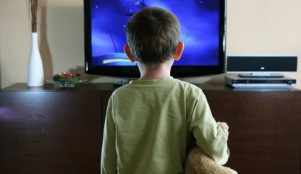by
Stepy —
September 13, 2014
- Do not ignore the power of a good night’s sleep. Quality sleep has become somewhat of a rarity these days.
- Sometimes, it is easy to believe that you can get by without an adequate amount of rest, but a lack of sleep can contribute to health risks in the long run, so it is important to make it a priority. The same applies to our kids.
- According to SleepMed of Santa Barbara, “over 2 million children suffer from sleep disorders,” and an estimated 30 to 40 percent of children do not sleep enough. Children who leave electronic devices on at night sleep one hour less on average, according to a poll released by the National Sleep Foundation.
- Dr. Jill Creighton, Assistant Professor of Pediatrics, Stony Brook Children’s Hospital, believes that a successful school year starts with good sleep.
- So how can you make sure your children get the best sleep possible? “First — develop a nighttime routine,” says Dr. Creighton. It could be listening to smooth music, reading a book, or something that relaxes them before they sleep.
- Second, power off. “The hour before bed should be a no-electronics zone,” says Dr. Creighton. A study from the Massachusetts General Hospital for Children and Harvard School of Public Health following children from ages 6 months to about 8 years, found a consistent link between television viewing and a shorter amount of sleep. Studies show that backlit electronics can disrupt sleep.
- Dr. Creighton recommends banning electronics from the bedroom. “The burst of light from a phone (even if it’s just to check the time) can break a sleep cycle,” says Dr. Creighton. “A regular alarm clock is best,” she adds.
- If your child has an addiction to electronics, or is resistant about turning off their device, try reducing their screen time. “Reduce screen time by 30 minutes or more each week until you reach your goal,” says Dr. Creighton. “A good rule of thumb is try to limit recreational screen time to 60 minutes every day. And for every 30 minutes of screen time, make sure your kids get 30 minutes of physical activity,” Creighton adds.
- Try replacing screen time with activity. “It’s sometimes hard to get kids off the couch and get them moving, especially if they think of physical activity as “exercise” or “boring,” says Dr. Creighton. “Parents, get creative and make moving fun for kids,” she continues.
- The last thing is establishing good habits.
- Distraction from electronics during mealtime can contribute to overeating and unnecessary screen time. Parents, be a good role model and set an example for your kids.
- So how much sleep do your children need?
- General sleep guidelines from the National Heart, Lung and Blood Institute are as follows:
- • Newborns: 16-18 hours a day.
- • Preschool-age children: 11-12 hours a day.
- • School-age children: at least 10 hours a day.
- • Teens: 9-10 hours a day.
- • Adults (including the elderly): 7-8 hours a day.
- Note: None of the information in our website is intended to diagnose, treat, cure or prevent any illness or disease. The content on our website is for educational purposes only. Please consult your health practitioner or a qualified expert before changing your diet.
-
- DON’T FORGET to sign up for our weekly newsletter to get our latest articles, updates, free recipes and giveaways.
-
- For the health benefits of sleeping.
- Fragmented sleep may accelerate tumor growth.
- Detrimental effects of watching television on sleep in young children.
- Banana, cherry and kale sleep aid smoothie.
- For a cumin sleep aid tea.
-
- REFERENCES:
- 1. “What Is Keeping Your Kids Up at Night?” Stony Brook University Newsroom. Stony Brook University, 04 Sept. 2014. Web. 10 Sept. 2014.
- 2. “Sleep Statistics.” SleepMed of Santa Barbara. SleepMed of Santa Barbara, n.d. Web. 10 Sept. 2014.
- 3. “Turning Electronics off While Sleeping Makes a Difference.” National Sleep Foundation. National Sleep Foundation, 03 Mar. 2014. Web. 10 Sept. 2014.
- 4. “How Much Sleep Is Enough?” National Heart, Lung and Blood Institute. National Institutes of Health, n.d. Web. 10 Sept. 2014.
- 5. “Study Supports Detrimental Effects of Television Viewing on Sleep in Young Children.” EurekAlert! Massachusetts General Hospital, 14 Apr. 2014. Web. 10 Sept. 2014.
- 6. “Television Viewing, Bedroom Television, and Sleep Duration From Infancy to Mid-Childhood.” Pediatrics. Pediatrics, 14 Apr. 2014. Web. 10 Sept. 2014.


















